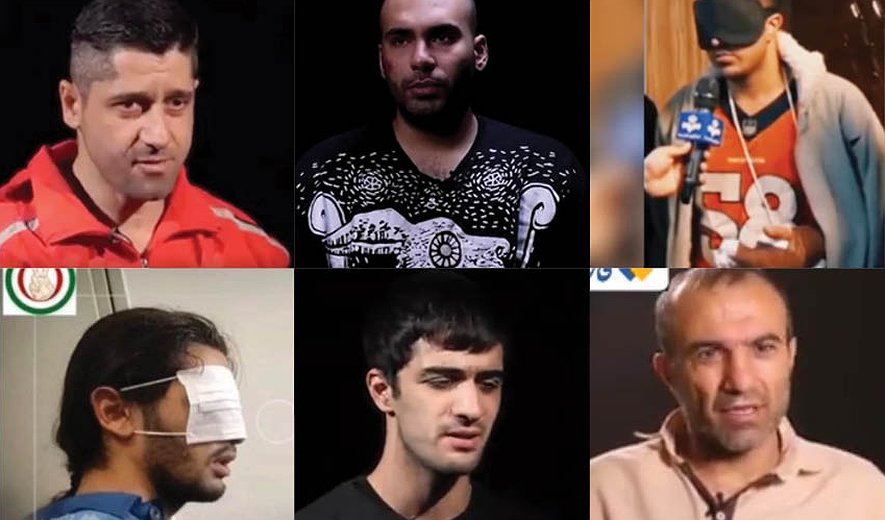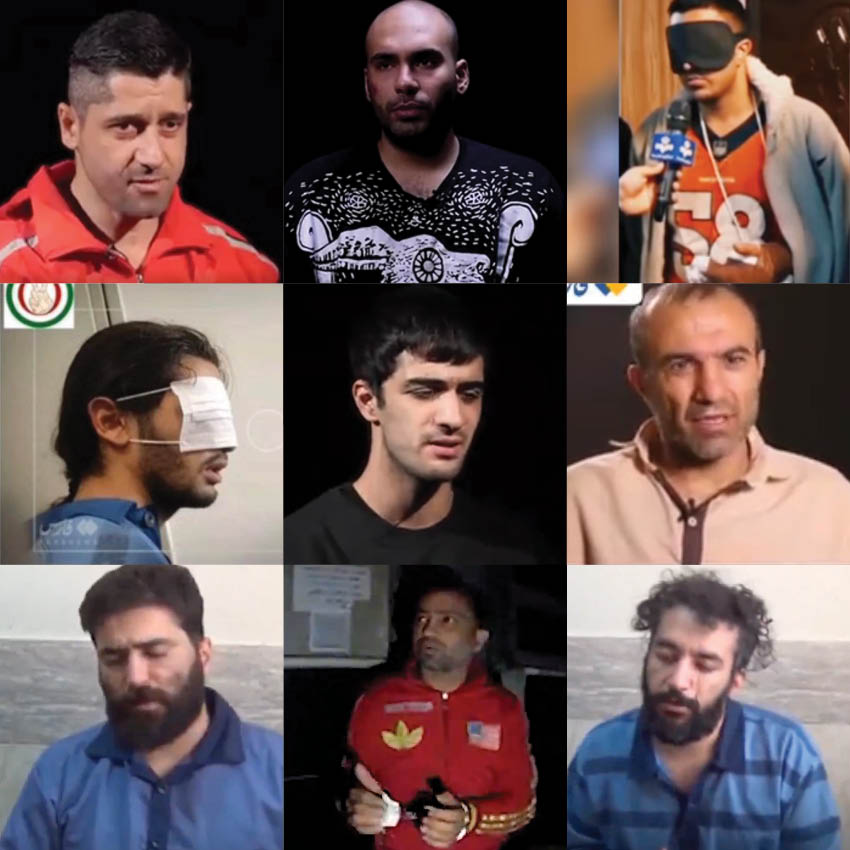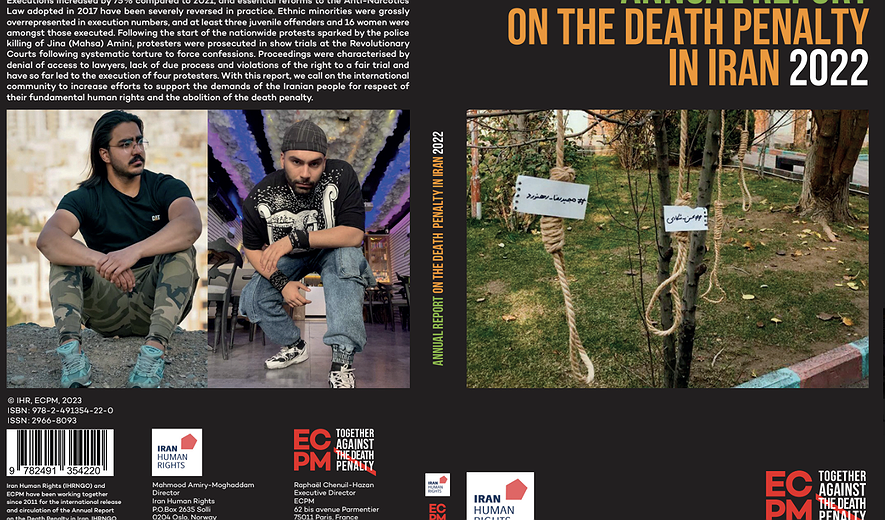Forced Televised Confessions in 2022

This is an extract from the 2022 Annual Report on the Death Penalty in Iran
The Islamic Republic has used “televised confessions” as a propaganda tool aimed at creating fear and justifying the heavy sentences handed down to its political opponents and activists, since its inception in 1979. Such confessions are extracted after physical or/and psychological torture, lengthy solitary confinement, threats or promises of reduction in the gravity of sentences. The confessions are often aired after arrest, following public protests to a sentence, or immediately prior to or after the execution as a means of reducing backlash.
The first forced confessions in the current nationwide protests were aired on September 24, a week after the start of the nationwide protests. The majority of the confessions were aired after arrest and prior to any legal proceedings taking place. This is a clear violation of the defendants’ right to be presumed innocent until proven guilty and fair trial rights.
When protester Majidreza Rahnavard was paraded before state cameras, he was blindfolded and his left arm had already been broken under torture. He was also forced to record other forced televised confessions. Majidreza was executed publicly at the scene of his alleged crime on December 12.

Top row from left: Seyed Mohammad Hosseini, Mohsen Shekari and Majidreza Rahnavard; middle row: Milad Armoun, Mohammad Mehdi Karami and Mojahed Kourkour; bottom row: Majid Kazemi, Saeed Yaghoubi and Saleh Mirhashemi
The forced confessions of at least 37 other protesters facing death penalty charges and those executed were aired prior to any legal proceedings taking place.
At trial, not only are forced confessions used as evidence of guilt, but under threats and coercion, the defendants are often forced to repeat the false accounts in court. Once the defendant has been found guilty, their forced confessions are again used as a propaganda tool to justify their death sentences. This has been the case for sentences that have sparked outrage like that of the defendants in the Karaj case, Mohammad Mehdi Karami, Seyed Mohammad Hosseini, Hamid Ghareh Hassanlu and Reza Aria; defendants in the Isfahan case, Saeed Yaghoubi, Saleh Mirhashemi and Majid Kazem,i and Majidreza Rahnavard.
Forced confessions are also aired post-execution to justify the inhumane punishment of death. This has been the case for all four protesters executed. The forced confessions of Mohsen Shekari were aired only after he was executed on December 8. In the video, Mohsen’s face was visibly bloodied and bruised. Another visibly injured protester is protest-rapper Toomaj Salehi who was badly beaten during arrest and forced to repent on camera. A clip of his interrogations were also later aired. Toomaj is facing death penalty charges in Isfahan.
On 19 January 2023, the EU Parliament adopted a resolution in which it strongly condemned “the Islamic Republic’s policy of forcing confessions using torture, intimidation, threats against family members or other forms of duress, and the use of these forced confessions to convict and sentence protesters.”


